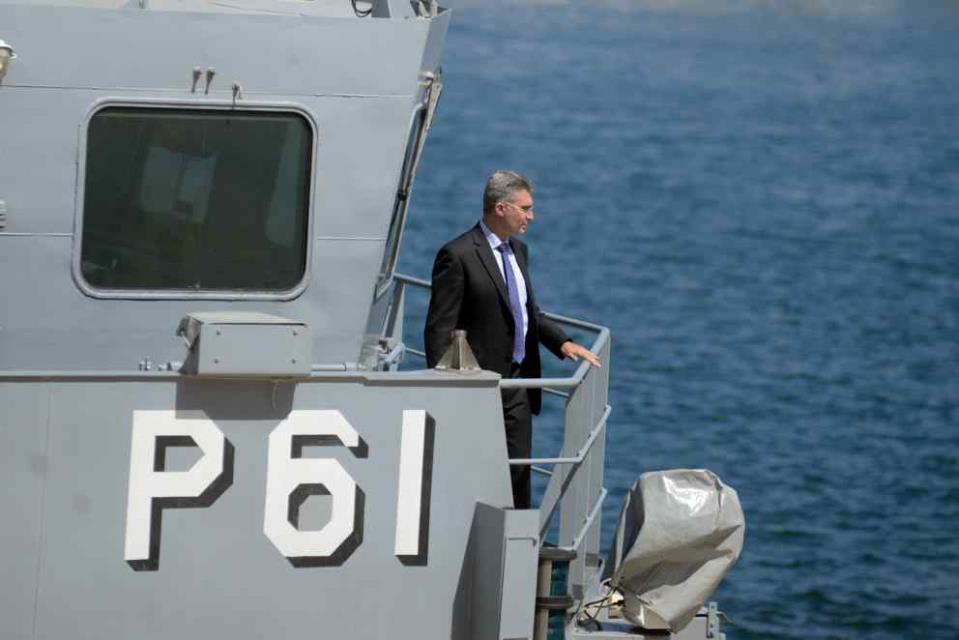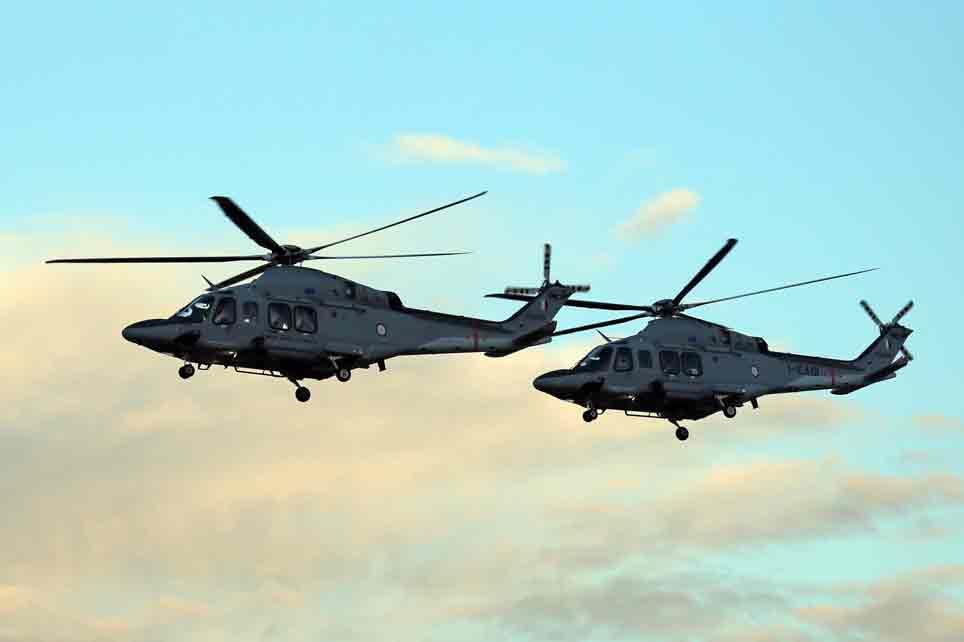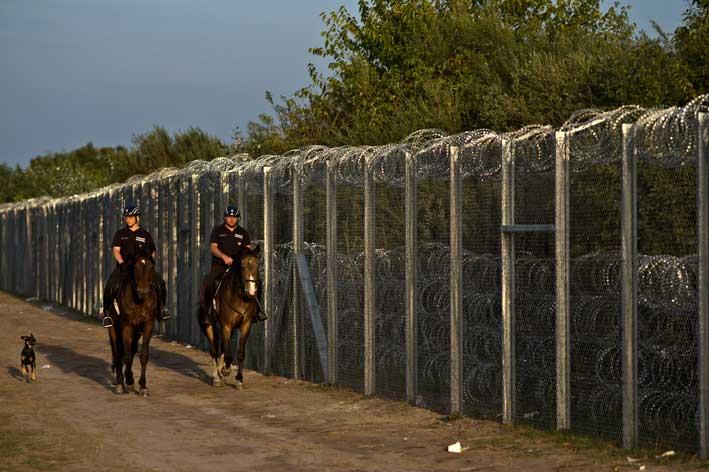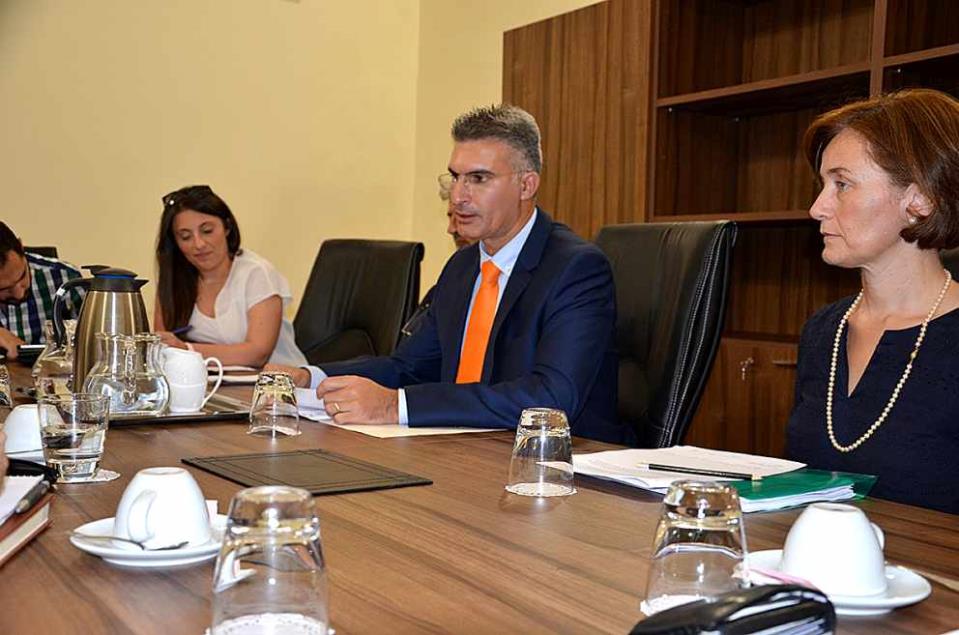Home Affairs Minister Carmelo Abela this evening admitted that there was an "informal collaboration" between Malta and Italy whereby all migrants saved in the central Mediterranean would be disembarked in Italy. This was the first time that the government has openly admitted the existence of such an arrangement. But in a statement issued at about 8.30pm, the Minister backtracked and said there was no such thing. In a statement to clarify the matter, the Ministry said: “Referring to reports about comments given to the media, the Ministry clarifies that there is no informal agreement with Italy on immigration. What does exist is very close collaboration where Malta uses all its AFM resources to save migrants from the sea.”
This, said the ministry, meant that there are no arguments when it came to saving people, as used to happen in the past.
This year only 93 migrants have landed in Malta by boat.
Addressing journalists this afternoon, Mr Abela had said the deal was informal and not set in stone, highlighting the fact that it could change from one day to the next, depending on the circumstances. This could happen, for example, as a result of a change in government in Italy.
The Minister said in recent years both Malta and Italy would send their assets out to save people and have the occasional argument on who should take the rescued migrants. “There was a mature political decision for Italy to handle all disembarkations,” he said.

Mr Abela refuted claims that the Armed Forces of Malta had taken a step back after the agreement was reached and insisted that they were still very much committed to saving lives at sea. When this paper pointed out that most of the AFM fleet has remained at anchor for practically the whole summer, and the fact that the AFM said it was not involved in several recent rescue operations, the minister insisted that the armed forces always answered calls for help coming from Frontex. He conceded, however, that such calls may have been made fewer times in recent months.
He also argued that rescue assets in the Mediterranean have increased, so much so that even countries like the UK had given a helping hand this year. Mr Abela said Malta’s only offshore vessel, the P61, was used whenever possible but needs an overhaul. The offshore vessel acquired from Ireland will join the fleet in the coming weeks and Malta also has plans to acquire a third, brand new offshore vessel. The smaller Maritime Squadron vessels have a shorter range and cannot be used for far away rescues, he said.
Mr Abela insisted that a number of Maltese soldiers had recently taken part in a Frontex mission in Greece while others were stationed in Italy, helping in the coordination of rescue operations.

Mr Abela also spoke on yesterday’s EU home affairs ministers’ meeting in Brussels and reiterated Malta’s support to the European Commission’s plan to relocate 120,000 migrants among the EU member states. He said no final agreement had been reached on the numbers and the ministers had ended up in a sort of “no man’s land” since some countries were hesitant to commit themselves while others did not want the scheme to be voluntary.
Another, formal, meeting will be held between 8 and 9 October and this could be followed up by a leaders’ meeting.
Mr Abela said the message he conveyed during the meeting was on the need for the EU to reach a comprehensive and lasting deal instead of moving from one emergency to the other.
On Germany’s decision to re-impose border controls, Mr Abela said this was more of a security measure which was being carried out under Schengen rules. The situation in Hungary, where a razor wire fence to keep migrants out is being erected, was more concerning he said.

Asked on the security issue, amid fresh claims that terrorists could be infiltrating Europe posing as refugees, Mr Abela said one had to find a balance. While one should not say that migration brings terrorism countries had to be cautious and be aware of who was coming in.
Mr Abela said it was not true that the EU was only preoccupied with dealing with the migrant influx rather than how it can stop the problem at source. He said ministers proposed the creation of a trust fund to help the migrant source countries. However, this solution was more suitable for African countries rather than war-torn states like Syria.
Another issue the ministers spoke about was repatriation efforts. Less than 40% of migrants who were refused asylum were actually being returned to their home countries. There was agreement, he said, to boost repatriation efforts.

Mr Abela said Malta also supported a re-evaluation and review of the Dublin Regulation, which was out of date in the current situation.
It was explained to ministers attending the meeting that the recent migrant exodus from Turkey came as a result of a deteriorating situation at the refugee camp in that country.
EU ministers are currently drafting a list of safe countries where UNHCR camps can be set up. These would be set up in states neighbouring migration source countries. Mr Abela said many refugees would wish to return to their home countries once the hostilities ceased. These camps would also serve as a more structured way to deal with migration and prevent perilous land and sea journeys. Failed asylum seekers would also be returned to these camps, rather than to dangerous zones.

Visas to Libyans
Asked why Malta had been willing to grant 74,000 visas to Libyans in the space of two years but was “unwilling” to grant asylum to refugees, Mr Abela said most of the visas were issued for business or education. It was true that some of the beneficiaries applied for asylum once they arrived in Malta, and that the majority of these were Libyan, but the vast majority returned to their country once their business here was concluded. “I can assure you that the police are carrying out the necessary checks and we know who the people coming to Malta are.”